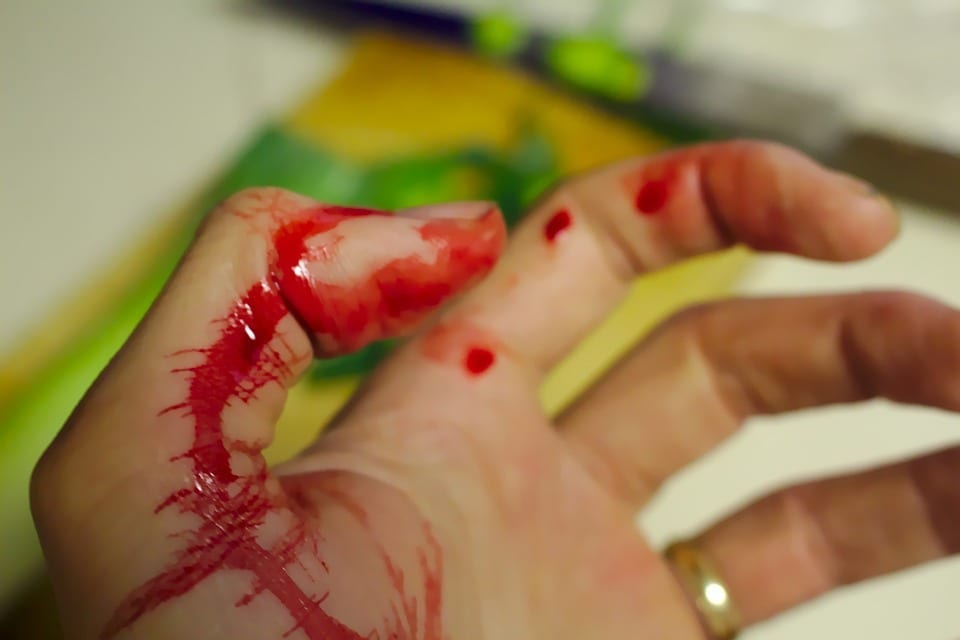DESCRIPTION
Open wounds are injuries where several layers of skin may be torn or injured and blood is usually present.
TYPES OF WOUNDS
- Abrasion – This is the most common type of open wound. It is where the skin has been rubbed or scraped away
- Cut – These often result from a sharp object and bleed easily. Cuts that are longer than one inch, gaping or with areas of fat, muscle or bone exposed require medical attention.
- Puncture – These result when a sharp pointed object pierces the skin.
- Animal or human bite – These bites always require medical attention since they are always contaminated by saliva and require extra care.
RISK INCREASES WITH
- Stress, carelessness, fatigue, alcohol consumption or other drug use
- Going barefoot
- Not wearing protective devices when participating in sports or other activities that require precautions.
- Not following safety precautions or unfamiliarity with a procedure or piece of equipment.
GENERAL TREATMENT MEASURES
- The goals of treatment are to prevent infection, disability, to stop bleeding, or to improve cosmetic appearance of a possible scar.
- Thoroughly clean all wounds by washing with mild soap and running water. Be sure to remove all visible debris. Do not substitute sprays and other cleansing agents for washing as described above unless no other option is available. Do not scrub deep wounds. If unable to remove the debris and dirt, see a medical provider.
- Stop the bleeding by applying continuous pressure for ten minutes with a clean cloth or gauze and elevating the injury. If blood is spurting or you are unable to stop the bleeding in 10 minutes seek medical care.
- Apply a Band-aid or other sterile bandage directly on the wound and apply a bandage or tape to hold the dressing in place if needed.
- If the wound is dirty or it is a puncture wound from an outside object and it has been more than 5 years since your last tetanus shot you will need a tetanus booster within 72 hours of the injury. For other injuries if it has been 10 years since your last tetanus you will need a booster.
- Keep the dressing or band-aid clean and dry. Should it become wet, change it.
- If sutures (stitches) are needed, seek medical care within the first 8-12 hours, however wounds older than this should still be evaluated as soon as possible.
POSSIBLE COMPLICATIONS
- Permanent scarring
- Infection at the wound site
- Tetanus and other infections
- Disability or limited movement
MEDICATION
Over the counter antibiotic ointments may be used on the wound. Wash or rewash the wound prior to applying ointments. If pain is present you may want to use an over the counter pain reliever.
SEEK MEDICAL CARE IF…
- You are unable to clean the wound of debris, or if you suspect there may be something embedded in the wound
- The bleeding cannot be stopped after 5-10 minutes of direct pressure, or blood is spurting.
- The injury affects the movement of the area, such as the finger, foot, hand.
- You need tetanus immunization
- The wound is due to a human or animal bite
- The wound needs stitches or medical glue to close the wound, if the wound is gaping or deep
- A laceration on the face
- No sign of healing after 2 days
- Any of these signs of infection:
- Fever
- Discolored drainage or foul smelling discharge from the wound
- Swelling, redness, and heat around the wound
- Red streaks on the skin moving away from the injury site
This information is for educational purposes only. Consult your doctor for specific medical advice, diagnosis and treatment.




Leave a comment